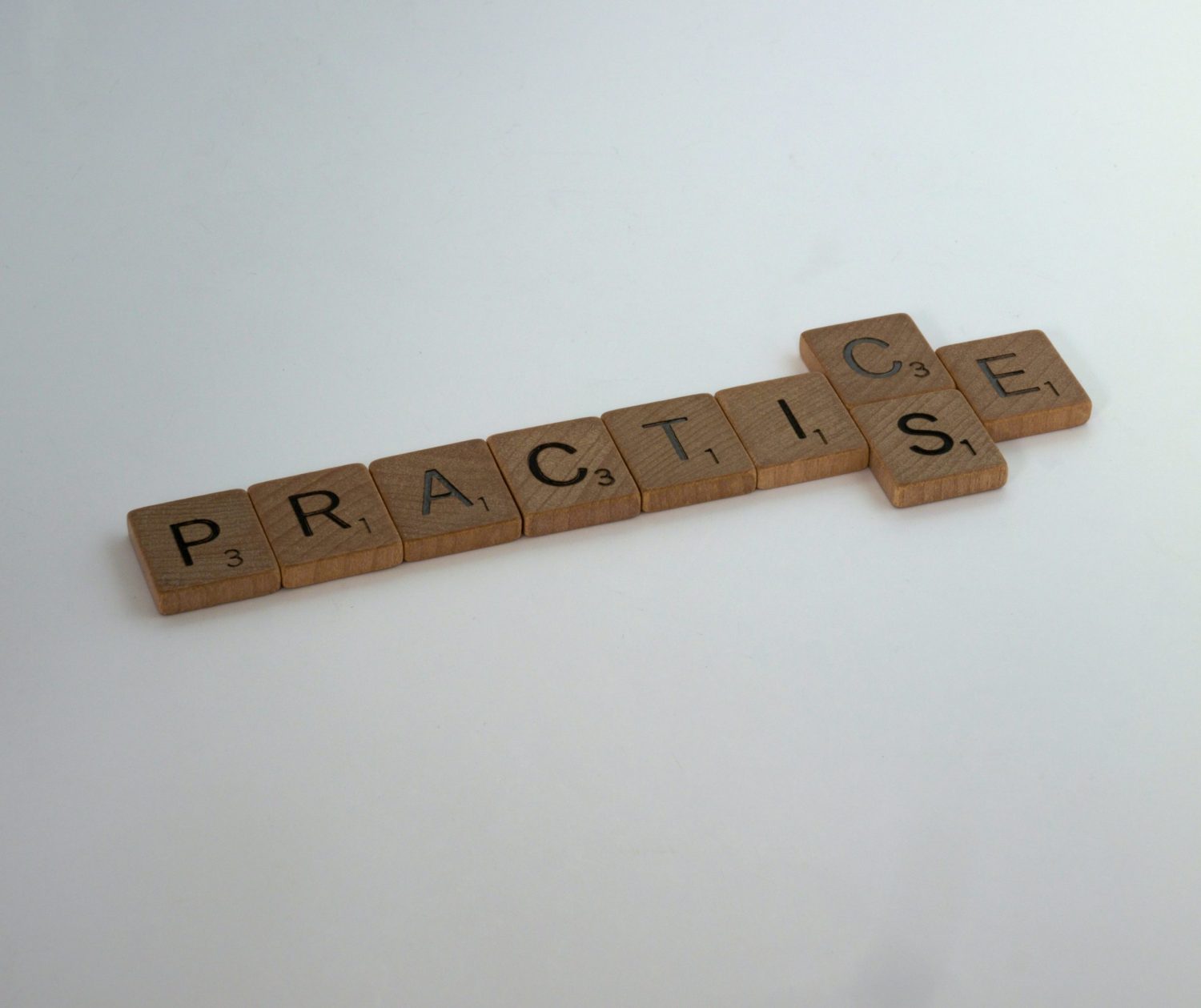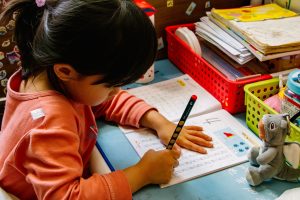
April 19, 2021, by Rupert Knight
Reconsidering the role of deliberate practice in teacher education
The disruption to schooling this year has led to some unusual learning experiences for beginning teachers. While they may have missed some face-to-face time in classrooms, they have nevertheless been able to experience aspects of creative thinking, teamwork, parental liaison and technology use that have not been as prominent in the past. All of this brings into sharp focus the question of what constitutes teacher expertise and how it is best developed. In this blog, Rupert Knight considers the role of deliberate practice in this process.
Revisiting teacher expertise
Teacher expertise has been the subject of a previous blog in this series, which cited the work of David Berliner. Among Berliner’s insights are the ways that expert teachers have the capacity to exercise judgment by ‘reading’ a classroom effectively, quickly discerning patterns and significant issues. This greater ability to see the whole, he suggests, is partly possible because of greater automaticity where basic, everyday routines are concerned. An interest in automaticity has in turn led some to see deliberate practice, associated with the work of the late Anders Ericsson, as potentially fruitful for effective teacher development.
Deliberate practice
The work of Ericsson and colleagues, as presented in this seminal paper and more recently in the book ‘Peak’ (Ericsson & Pool, 2017), explains how the journey to expertise is not based simply on amassing experience. Everyday, ‘naïve’ practice needs to be augmented by focused or ‘purposeful’ practice of specific facets of the whole. In the context of learning to teach, for example, this is the difference between simply teaching an increasing number of lessons and choosing also to work separately on particular practices that form part of that overall act. The highest form of purposeful practice is ‘deliberate’ practice, aimed ultimately at developing effective mental representations of an activity, or the ability to discern and form meaningful patterns. It involves features such as:
• effortful work, outside one’s comfort zone;
• activities based on expert practice and designed specifically for high impact;
• repetition of tasks with well-defined, progressive goals;
• prompt and frequent feedback from an expert.
Although questions have been raised about the scale of the reported impact on performance (e.g. in this replication study by McNamara & Maitra), deliberate practice has struck a chord with many in education. The allure of enumerating and refining the ingredients of expert performance is clear enough, but how does it relate to teaching?
Deliberate practice and teacher development
There are reasons to be cautious about applying deliberate practice principles to learning to teach. For one thing, teaching as an activity is ill-defined – in terms of unambiguous scope and goals – when compared with the worlds of sports performance and musicianship studied by Ericsson. Related to this, identifying the experts from whom to learn is no simple matter. As summarised here by Dylan Wiliam, judgments of teacher quality, whether based on classroom observations or pupil attainment, are notoriously unreliable.
Nevertheless, deliberate practice has been applied to teacher development. Often, this has taken the form of seeking to identify and isolate highly specific skills or routines, prior to breaking them down for analysis, scripted exemplification and rehearsal. This atomised approach, explained in this Deans for Impact publication and enacted through tightly structured programmes such as Teach Like a Champion, may help novices develop a degree of automaticity for some potentially useful techniques at a micro level but, taken alone, this feels like a limited view of the complex work of a teacher. A previous blog in this series highlighted the concept of core practices as a richer, more nuanced way of identifying and working with specific aspects of teaching. Aside from debates about the scale of the practices themselves, perhaps there is another question here. Can deliberate practice, with its emphasis on mental representations, go beyond automaticity towards the aspect of expertise, referred to by Berliner as ‘perceptual training’, or the ability to recognise the deeper structures at play in a classroom scenario?

An alternative view of deliberate practice and teacher education
Rather than just zooming in at micro-level on routinised activities, such as scanning a classroom or allowing wait time when questioning, practices might also be defined at a broader level and in a way that emphasises judgment as well as performance. Dunn and Shriner, writing about deliberate practice, remind us:
‘Experts continue to look for and tackle the complexities of a domain, rather than reduce problems to situations that can be handled with routine procedures.’ (p.632)
Their research identifies planning and assessment activities as examples that have many of the hallmarks of, or potential for, deliberate practice. They conclude that the application of deliberate practice might actually be about approaching these types of everyday activity in a mindful, or deliberate, way. In other words, perhaps it is the beginning teacher’s understanding and use of meaningful, sometimes complex activities, that should be our focus, rather than fragmentation of teaching into tiny, disjointed components. In line with this goal and the importance of building mental representations, the role of the expert, or more knowledgeable other, shifts from being a model to be observed and mimicked to being a source of insights into what Lee Shulman has referred to as a teacher’s pedagogical reasoning.
Towards a set of principles
At this stage, a set of principles may be useful. I suggest that this form of deliberate practice needs to involve:
• Practice that is additional to, and separate from, teaching whole lessons.
• A focus on authentic and complex tasks, rather than choreographed routines.
• Practice that is repeated but which involves guided reflection, rather than just feedback and refinement.
• Collaboration with more expert partners who offer insights into their reasoning, rather than just observable models.
• Opportunities for practice in a variety of contexts, with a variety of ‘experts’, but with a shared framework and language.
An example of an ‘authentic and complex task’: planning
To take one example, we might think about how planning for learning might afford deliberate practice opportunities.

At the lowest level of ‘naïve’ practice (or everyday experience), this might simply have involved beginning teachers understanding the features of a particular type of lesson, being introduced to an agreed format for planning and then quickly starting to plan parts of lessons before proceeding to whole lessons. Progress, therefore, might be seen simply as the ability to plan for more lessons with increasing independence. If we add in a more purposeful level, specific aspects of this process (transitions, differentiation, etc.) could be extracted for focused attention or feedback.
However, if we are guided by the proposed principles based on deliberate practice, it is possible to envisage a host of learning opportunities which might build up in the process of learning to teach. For example, consider these sets of progressive activities:
1A.Inferring the plan behind an observed lesson
– Observe an experienced teacher’s lesson, mapping its critical features onto a written plan
– Discuss with observed teacher: compare the observer’s written plan with the teacher’s intentions
– Annotate the written plan based on new insights into the teacher’s reasoning
– Repeat the process with further lessons in a similar context, trying to pre-empt the additions needed at annotation stage
1B. Planning a follow-up to an observed lesson
– Observe an experienced teacher’s lesson, making notes on an agreed focus (e.g. catering for diverse needs, allowing for open-ended outcomes, etc.)
– Discuss with observed teacher: compare the observer’s written plan with the teacher’s intentions
– Produce a plan for a hypothetical follow-up lesson
– Repeat the process, this time with a real lesson to follow on from the first one
2A. Planning for a small group activity
– Plan a brief activity for a small group in a chosen subject area and audio or video record the teaching
– Using the recording, reflect on the activity and refine the plan
– Teach the activity to a different group of learners
– Discuss with an experienced teacher: reflect on the differences due to the refinements and the different learners
– Repeat the process in a new subject area
2B. Collaboratively planning a whole lesson
– Collaborate on the planning of a lesson which is then taught by the experienced teacher and observed by the beginning teacher
– Reflect afterwards on specific focus areas
– Collaborate on the planning of a lesson which is then team-taught by beginning teacher and experienced teacher
– Collaborate on the planning of a lesson which is then taught by the beginning teacher and observed by the experienced teacher
– Repeat stages 3 and 4 in a new subject area
The individual activities above are not unusual, particularly in the early stages of learning to teach, but have been brought together in a coherent sequence. In each case, there is:
– some ‘effortful‘ activity which sits outside – or alongside – the usual planning process;
– a sense of repetition with progression;
– the opportunity to reveal something of the experienced teacher’s mental representations.
We have recently begun to work with school-based colleagues to map out similar sequences for practices such as explaining and modelling. How might this work for other everyday practices, approached mindfully?
• Could similar sequences be created, for example, for giving pupils feedback, or for checking for understanding during a lesson?
• This vision appears to ask a lot of the experienced teacher in each scenario, but how could we help novices take ownership of the process of practice?
• How might we develop a shared framework and language so that this aspect of teacher development can be approached holistically?
Reference:
Ericsson, A. & Pool, R. (2017) Peak: how all of us can achieve extraordinary things, London: Vintage
No comments yet, fill out a comment to be the first

Leave a Reply